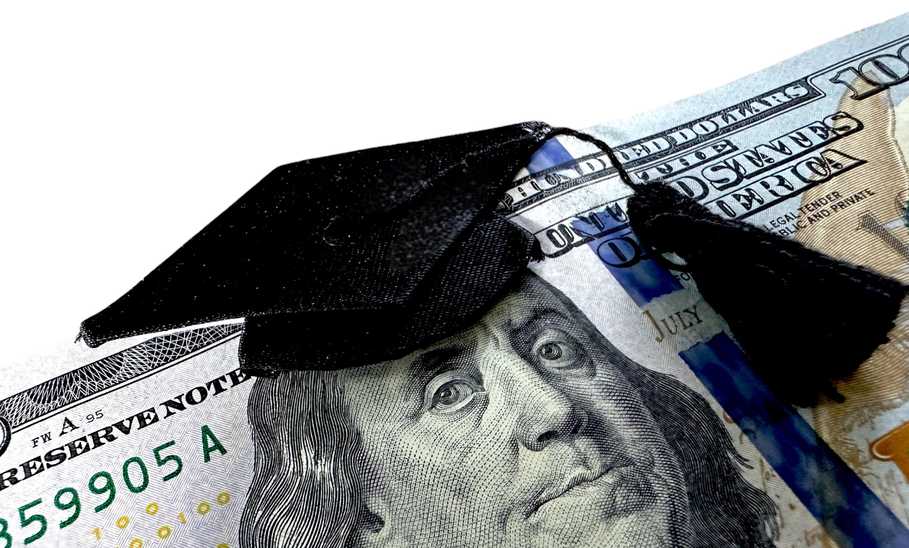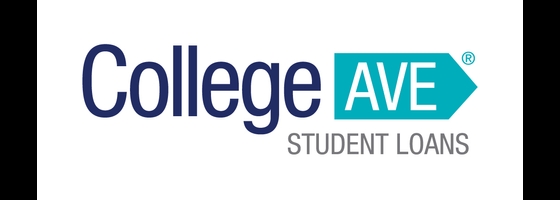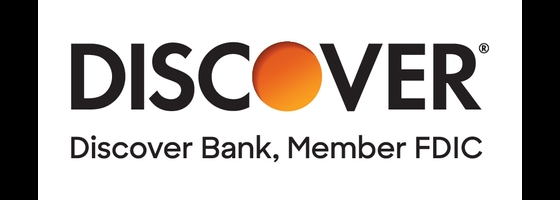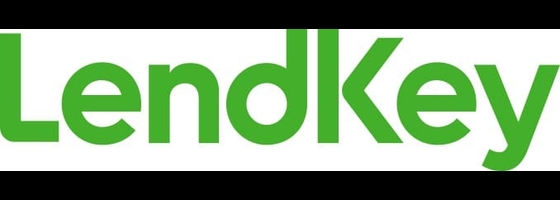Best Student Loan Refinance Companies for January 2025

Our evaluations and opinions are not influenced by our advertising relationships, but we may earn a commission from our partners’ links. This content is created by TIME Stamped, under TIME’s direction and produced in accordance with TIME’s editorial guidelines and overseen by TIME’s editorial staff. Learn more about it.
American education is expensive—and Americans have the student loans to prove it. According to the most recent data available from the Federal Reserve, per the second quarter of 2023, the U.S. has more than $1.7 trillion in student debt, both federal and private. (That’s even more than we owe on auto loans, which reached a record high $1.5 trillion in the same time frame.)
And with some private lenders’ interest rates reaching well into the double digits (SoFi caps its rate at 13.95%)—and even federal loan rates reaching higher than 8% in some instances—many former students find themselves unable to make a substantial dent in, or even keep up with, their debt.
Enter refinancing, an option that allows those with multiple student loans to consolidate them into a single monthly payment, one that may come at a lower interest rate or, by extending the loan’s term, a lower monthly payment. (Keep in mind that this latter tactic may mean paying more in interest overall.)
These days there are dozens of options on the market for those looking to refinance their student loans. Here’s how some popular contenders stacked up.
| Company | Best for | Loan amounts | Loan terms | APR Range* (may include autopay discounts) | Minimum Credit Score** |
|---|---|---|---|---|---|
Citizens Bank Student Loans Refinance | Larger loan balances | Minimum $10,000 to maximum $300,000 for bachelor’s degree, $500,000 for graduate degrees, and $750,000 for professional degrees | 5, 7, 10, 15, or 20 Years | 5.89% to 12.10% fixed; 6.37% to 13.30% variable | N/A |
College Avenue Student Loan Refi | Low credit score | $5,000 to $150,000 ($300,000 for medical, dental, pharmacy, and veterinary doctorate degrees) | Flexible between five and 20 years | 6.99% - 13.99% | No set minimum |
Discover® Student Loan Refi | Consolidation of multiple loans | Minimum $5,000 to maximum $150,000 (higher for certain fields of study) | 10 or 20 years | 5.99% to 9.99%fixed; 7.49% to 11.49% variable | No set minimum |
Earnest Student Loans Refi | Flexible repayment period | Minimum $5,000 to maximum $500,000 (minimums higher in California and New Mexico) | Flexible between five and 20 years | 3.94% to 9.23% fixed; 5.88% to 9.98%variable | 665 without a cosigner; with a cosigner 650 |
Laurel Road Student Loan Refi | Associate degree refinancing | Minimum $5,000 up to 100% of outstanding private and federal student loans; (maximum $50,000 for those refinancing associate degree loans or parents refinancing) | Five, seven, 10, 15 or 20 years | 5.99% to 11.24% fixed; 5.24% to 10.64% variable | N/A |
LendKey Student Loan Refi | Multiple loan types | Minimum $5,000 to maximum $125,000 for undergraduate debt; $250,000 for graduate school debt | Five, seven, 10, 15, or 20 years | 4.89% to 9.24% fixed; 4.68% to 8.26% variable | N/A |
Penfed Student Loan Refi | Parents and cosigners | N/A | N/A | 7.74% to 9.93% fixed | N/A |
RISLA Student Loan Refi | Deferred refinancing while still in school | $7,500 per year to $250,000 maximum based on degree type | Five, 10, or 15 years (depending on loan type) | 6.34% to 8.54% fixed | 680, with a $40,000 minimum income requirement |
Sofi Student Loan Refi | Smaller loan balances | $5,000 to $100,000 | Five, seven, 10, 15, or 20 years | 4.49% to 9.99% fixed; 5.99% to 9.99% variable | 650 |
Splash Financial student loan refinance | Low starting interest rates | N/A | N/A | 5.19% to 9.99% fixed; 5.99% to 9.99% variable | N/A |
Brazos Student Loan Refinance | Texas residents | Minimum $10,000 to $150,000 for bachelor’s level debt or $400,000 for graduate level debt | Five, seven, 10, 15, or 20 years | 3.85% to 6.90% fixed; 4.55% to 5.70% variable | Minimum 720, or if applying with cosigner, 690 (but cosigner must have 720) |
*Interest rates as of Jul. 10, 2024
**Most student loan refinance companies do not advertise a minimum credit score. These figures were acquired via interviews with a company spokesperson.
While many lenders cap their refinancing loan at $100,000 or $150,000, Citizens Bank allows borrowers to finance up to $300,000 for undergraduate debt alone, up to $500,000 for graduate-level debt, and up to $750,000 for those who’ve attained professional degrees. Terms are flexible: Choose from five, seven, 10, 15, or 20 year repayment periods, all at competitive interest rates either fixed or variable.
Do keep in mind, though, that there’s a corollary to these higher loan maximums, which is a higher loan minimum. Citizens Bank will only refinance student loan balances of at least $10,000, so if you carry relatively little debt, it may not be the right fit.
With no set minimum credit score and a qualification process that takes other financial factors into account, College Ave could help borrowers with less-than-perfect credit refinance their student loans—and perhaps even improve their scores over time, depending on their repayment habits. Furthermore, their loan maximums go up to an appreciable $300,000 for those with medical, dental, pharmacy, or veterinary doctorate degrees.
However, College Ave’s interest rates start at 3.99% for even the most qualified borrowers—a higher low-range credit score than many of its competitors. Its high-end interest rate cap of 13.99% is the highest on our list.
Discover markets its refinancing loan primarily as a student loan consolidation product, so if you have multiple student loans—including loans that have already been refinanced or consolidated—the process is easy.
While the repayment terms are more limited at either 10 or 20 years, there’s no early repayment penalty. Discover also offers several different deferment and repayment assistance options if your financial situation changes over the course of the loan’s lifetime.
While most student loan refinancing lenders offer a variety of loan repayment terms, such as five-, 10-, or 15-year options, Earnest makes this important metric utterly customizable: Borrowers can choose virtually any loan repayment period between five and 20 years, with a total of up to 180 possible terms.
Plus, with no early repayment penalties you can knock out your balance even faster if you have the extra cash available, which means spending less overall on interest. Loans of up to $500,000 are available regardless of your degree level, making Earnest an option feasible even for those with higher amounts of undergraduate debt.
While many lenders make it easy to refinance debt accumulated for undergraduate and graduate degrees, it can be more challenging to refinance loans taken out to pursue associate-level studies. But Laurel Road makes it easy for such students to take out up to $50,000 for refinancing purposes—and has the same cap for parents looking to refinance loans, too.
For those with higher degree levels, Laurel Road allows refinancing up to the debt total without a specified maximum, a flexibility that can come in handy for those with higher balances. Interest rates start at just 5.99%, but climb as high as 11.24% for less qualified borrowers.
For those looking for a one-stop shop, LendKey offers more than student loan refinancing: You can also take out private student loans while you’re actively enrolled in study, as well as home improvement loans, through the site.
It’s important to understand, however, that LendKey is not actually a direct lender. Instead, it’s a service that connects borrowers to banks and credit unions that offer lower-cost loans. That means you may have more options to choose from if you apply, but also that your information will likely be shared with multiple companies.
Not every student loan refinancing company offers borrowers the opportunity to enlist the help of a cosigner—but PenFed does. And for those newly out of college and still establishing their credit history, a cosigner can make a big difference when it comes to scoring a favorable interest rate.
PenFed also allows parents to refinance student loans, and the online application process takes only 15 minutes or so. The firm’s maximum loan amount is not available to the public, however, and their interest rates range from 7.74% to 9.93%, which is not the lowest bracket on our list.
Refinancing loans often require repayment within a month or two of signing the loan, which, of course, is more difficult for those who are still in school. However, if you’re an actively enrolled college student looking to get ahead of not-so-excellent student loan terms you agreed to a few semesters ago, the Rhode Island Student Loan Authority (RISLA) may be able to help.
Along with a more traditional, immediate refinancing option for those who’ve already graduated, RISLA offers deferred refinancing for those who are still in school. Like many other types of student loans, including government loans, you won’t be required to begin repaying these loans until six months after you’re out of school. Keep in mind, however, that RISLA does have a $40,000 minimum income requirement along with its 680 minimum credit score, though a cosigner may help students meet these requirements even while enrolled full time.
Since opening its doors in 2011, SoFi has become a major name in the lending space, both inside and outside of student loan refinancing. Its customers can also choose to take out personal loans, student loans for active college students, mortgage loans, and more.
Its refinancing option, however, has a lower maximum loan amount than many of its competitors at just $100,000—which is plenty for a personal loan, but sometimes not enough to cover exorbitant student debt balances. However, for those with smaller debt totals, SoFi might make a smart choice with its easy application process, multiple available rate discounts, and flexible repayment options.
While no specific interest rate can ever be guaranteed to a borrower, and the rate you qualify for depends on a variety of financial factors including your credit score, choosing a lender with lower starting rates does stack the odds in your favor if you’re a qualified applicant. Splash Financial’s rates start at just 4.96% (with an autopay discount), which is appreciably lower than many other lenders on our list.
However, for less qualified borrowers, double-digit interest rates are possible—which may make it harder to save money on interest over time by refinancing.
Brazos’s student loan refinancing products come with one major caveat: They’re only available to Texas state residents. However, if you happen to call the Lone Star State home, the company could help you save money over time with fixed interest rates starting as low as 4.75%.
Another important caveat—Brazos requires a stricter minimum credit score than most, with either the primary borrower or their cosigner needing a score of at least 720 to qualify. (If you’re applying with a cosigner, your score will still need to be at or above 690.)
We reviewed the eligibility criteria, rates, terms, loan amounts, deferment and assistance options, and customer-service reputation of 11 of the best-known banks and financial institutions in the student loan refinancing space. Using these data points, as well as taking into account any unusual features or options offered by specific banks, we chose the student loan refinancing issuers who best fit different customer needs, such as loan repayment flexibility, larger debt balance allowances, and more.
Our interest rate ranges include autopay discounts and are subject to change. More creditworthy borrowers tend to get lower interest rates, so not all borrowers may qualify for the lowest rates listed.
While each student loan company sets its own rates based on market conditions, borrower creditworthiness, and many other factors, the average cost of the top student loan refinance companies listed here as of Dec. 10, 2023, is 5.96% to 10.75% fixed and 5.79% to 11.36% variable.
When it comes to refinancing your student loans, it can be well worth the time and effort it takes to shop around. Here are some tips for comparing student loan refinance lenders, no matter your financial situation.
Not all student loan refinancing products are created equal, but this is OK, because not everyone has the same refinancing needs. For example, if you have a higher student debt balance, a company whose loans max out at $100,000 might not work, even if it has lower rates than a competitor.
Saving money by scoring a lower interest rate is one of the biggest motivators for refinancing your student loans in the first place, but it’s not the only one. Refinancing can also help by extending your repayment period or lowering your monthly bill, which might mean you pay more interest in the long run but are able to make ends meet in the short term.
Furthermore, the company with the very lowest interest rates may not offer other benefits that are important to you, such as penalty-free early repayment or deferral and hardship options.
Waiting until your financial situation has improved can help you qualify for a lower interest rate and better overall refinancing loan terms. However, if you want to refinance sooner than later, even though your credit could still use some polishing, a cosigner may be able to help you qualify.
Keep in mind that your cosigner is as legally responsible for your debt as you are, so cosigning is a pretty big favor to ask. Furthermore, the bank may still have minimum creditworthiness requirements for cosigners, so having one isn’t a guarantee of approval.
If the timing’s just not right for student loan refinancing, you may still have options.
If you have federal student loans, you may be eligible to enroll in an income-driven repayment plan, which will adjust your monthly payment based on how much money you earn and the size of your family. For some the income-driven repayment plan may even result in a monthly payment of $0.
Depending on your profession and the type of student loans you have, you may qualify for student loan forgiveness programs at the state and/or federal level. Teachers, government workers, nonprofit employees, medical professionals—and those who have become totally and permanently disabled—may all be eligible to have their federal student loans discharged.
There are also many state-based loan forgiveness and repayment programs to look into. For example, California’s State Loan Repayment Program (SLRP) offers grants of up to $50,000 per applicant for healthcare professionals who commit to work two or four years in certain California markets. Check with your own local government to learn about options that may pertain to you. (Note that these forgiveness programs are usually only accessible to those with federal student loans.)
Unlike federal student loans, forbearance and hardship assistance programs vary among private lenders; if you have privately funded student loans, these options may or may not be available to you. If they are, though, they can be a way to temporarily quell the onslaught of student loan bills while you attend to other financial needs. Keep in mind that your loan may continue to accrue interest during the forbearance period. If you have student loans that have been in forbearance, a recent 2022 government program may provide a pathway to having your loans forgiven.
Just because refinancing isn’t an option today doesn’t mean it won’t be tomorrow. By finding ways to earn more money and keeping positive credit habits, such as making payments in full and on time, you may be able to improve your financial profile and eventually qualify for a refinancing loan that could save you money over time.
Student loan refinancing is one way borrowers can save money on interest, lower their monthly payments, extend their loan’s repayment period, or possibly even all three. Which lender is best suited for you will depend on your specific financial situation and needs, but many options are available on today’s market.
Each student loan refinancing company offers its own range of repayment terms and options. In most cases borrowers will get to choose from a selection of predetermined loan repayment terms, such as five-, seven-, 10-, 12-, 15-, or 20-year periods. Some lenders may allow you to customize your repayment term with more specificity than this. Check to make sure that your lender allows penalty-free early repayment, so you have the option of paying off your loan sooner without facing fees.
Yes, you can, but it only works in one direction. Refinancing is only an option with private lenders; the federal government does not offer loan refinancing options (though it does offer a variety of different repayment options, including income-driven repayment plans that can help make it easier to pay back your loan over time). While you can refinance both federal and private student loans with a private lender, you can’t refinance private student loans with the government. Also, if you refinance your federal loans with a private lender, you may lose access to income-driven repayment plans, forbearance and deferral options, and other forms of debt forgiveness.
Yes. Many student loan refinancing vendors offer borrowers the option to refinance with a cosigner, with Laurel Road being but one example. Keep in mind that your cosigner will be held legally responsible for your loan repayment to the same extent that you are as the original borrower, and their credit history can be affected by what happens with your loan. Be sure your cosigner understands their responsibilities—and pay your bills on time and in full.
The information presented here is created by TIME Stamped and overseen by TIME editorial staff. To learn more, see our About Us page.














